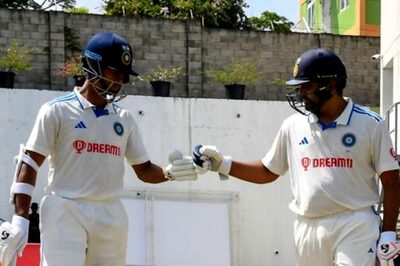
views
COIMBATORE: One of India’s eminent scientists and National Research Professors CNR Rao on Monday came up with a sensational allegation that the country’s bureaucracy has been stonewalling efforts to make research in central institutions attractive.Rao accused IAS officers, who are in a decision-making role, of being reluctant to clear proposals to pay higher salaries and incentives for scientists as the former does not want the latter to earn more than them.“If we want to recruit a talented young researcher and pay him a salary of Rs 1 lakh per month, we cannot do that. Bureaucracy has increased everywhere and it has turned out to be the biggest bottleneck for development or research. Appointment and promotion of faculty has been hit in many universities (due to this). In central institutions nearly 50 to 60 per cent of the faculty/research positions are vacant mainly because clearance has not come from the Ministries concerned,” he told journalists here.“But private institutions like PSG College of Technology do not have such kind of restriction and should start working on various research activities and produce results, as in the case of many foreigncountries,” Rao, who was here to inaugurate an International Conference on Advanced Materials (ICAM - 2011) at the institution, said. He was worried that, very few Indian institutions figured among the Top 100 world institutions.“We only have few experts in every field. If they go, we would be helpless. We are running short of talented youth who pursue research. We should create a large manpower capable of doing high capacity research. The contribution of US and China towards Science is 17 per cent and 13.5 per cent respectively, whereas in India it is just 2-3 per cent,” he noted.About the research on energy sector he said, “The country may require 4 lakh MV energy in the next 20 years. So, we should do lot of research work on solar thermal energy, which countries like the US and Israel have already started. Solar energy will be good only for local supply. When the 500 MW Prototype Fast Breeder Reactor at Kalapakkam is commissioned, it will show a new way of producing nuclear energy.”According to him, water will be the coal of the future. Many countries, including the US, were doing research to separate hydrogen from water. The US has allotted 120M $ for this research. “Research work was going on in Jawaharlal Nehru Centre for Advanced Scientific Reseach, Bangalore. The problem arises in storing hydrogen. No one has found a solution forthis issue,” he said.“India faces lots of problems, including safe drinking water. In our country, nearly 60 per cent of diseases were caused from water. Younger generations should do research work to get a solution for these problems,” he urged.




















Comments
0 comment